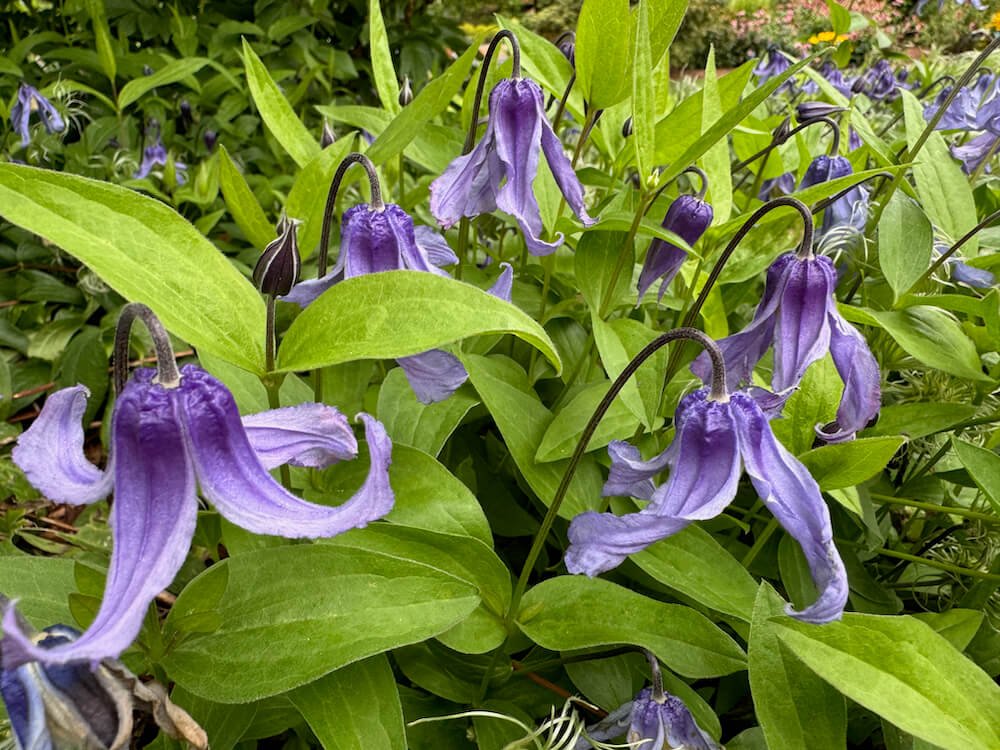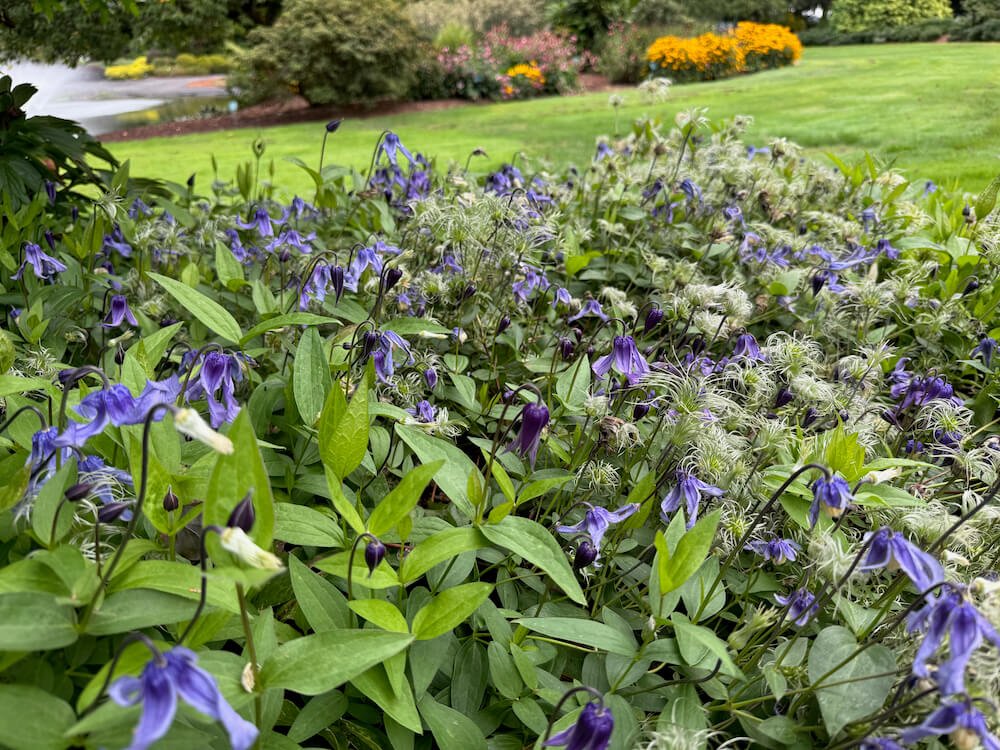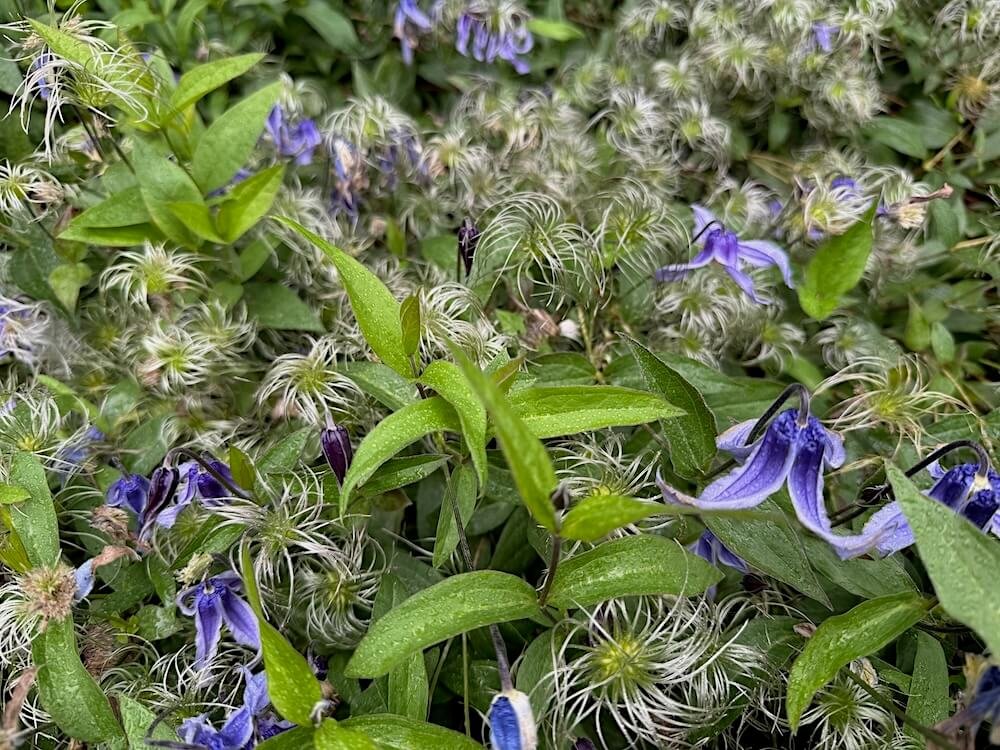DESCRIPTION
Clematis integrifolia 'Caerulea' is an herbaceous, non-climbing clematis known for its beautiful, nodding, bell-shaped flowers. These delicate blooms, which are a soft, blue to violet color, appear from late spring through early summer. The petals have a slightly recurved tip, giving them a graceful, downward-facing appearance. Unlike climbing clematis, this variety grows more like a small shrub, with arching stems that create a bushy habit.
Native to Europe and Asia, 'Caerulea' is often grown for its unique shape and striking blue flowers, which stand out against its green foliage. The plant’s compact, mounding growth makes it a great choice for borders, containers, or informal cottage gardens. After blooming, it produces decorative seed heads that add texture and interest to the garden well into the fall.
DESCRIPTION
Clematis integrifolia 'Caerulea' is an herbaceous, non-climbing clematis known for its beautiful, nodding, bell-shaped flowers. These delicate blooms, which are a soft, blue to violet color, appear from late spring through early summer. The petals have a slightly recurved tip, giving them a graceful, downward-facing appearance. Unlike climbing clematis, this variety grows more like a small shrub, with arching stems that create a bushy habit.
Native to Europe and Asia, 'Caerulea' is often grown for its unique shape and striking blue flowers, which stand out against its green foliage. The plant’s compact, mounding growth makes it a great choice for borders, containers, or informal cottage gardens. After blooming, it produces decorative seed heads that add texture and interest to the garden well into the fall.



